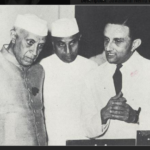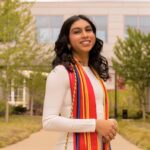In a world increasingly defined by interconnected crises such as climate instability, social fragmentation, and polarization, a global volunteer network known as the ALLATRA International Public Movement seeks to promote collaboration across science, civil society, and public policy. ALLATRA describes itself as an independent, volunteer-based initiative combining scientific research, civic dialogue, and humanitarian advocacy in pursuit of coordinated responses to global challenges.
The concept of “polycrisis” — the idea that humanity’s greatest challenges are interconnected rather than isolated — underpins much of the organization’s philosophy. Participants emphasize that addressing these issues requires cooperative and interdisciplinary solutions.
Headquartered in Atlanta, Georgia, ALLATRA functions as a global hub for scientists, human rights advocates, and professionals committed to safeguarding the planet by addressing geodynamic and ecological crises and fostering sustainable development through international cooperation.
The organization’s activities include interdisciplinary research on environmental topics such as nanoplastics, participation in international forums, and engagement in human rights advocacy.
Defining ALLATRA
Dr. Rafa Halabi of Bar-Ilan University (Israel), who specializes in systems management and security and holds academic training in diplomacy and human rights, characterized ALLATRA as follows:
“ALLATRA offers a living case study of how transnational advocacy networks evolve. It meets the key criteria of transnational advocacy outlined by scholars Margaret Keck and Kathryn Sikkink — shared values, voluntary participation, information exchange, and the pursuit of people-driven change across borders. At the same time, ALLATRA demonstrates characteristics of grassroots movements and knowledge-based communities.”
Prof. Dr. Gabriele Pao-Pei Andreoli, President of the Institute for Advanced Studies and Cooperation and a representative of the Vatican’s Pontifical Academy of Sciences, has classified it as a modern humanitarian movement, commenting on the organization’s activities:
“ALLATRA’s ongoing efforts connect people across the world in a spirit of cooperation and dialogue. Their commitment to interfaith understanding and humanitarian values reflects the idea that diplomacy can serve as a channel for mutual respect and unity.”
Together, these assessments present ALLATRA as a volunteer-driven knowledge network combining aspects of science, civic engagement, and humanitarian cooperation. The movement represents an open platform for sharing expertise and fostering international collaboration.
Nanoplastic and Environmental Research
In recent years, ALLATRA has focused part of its research on studying the scale and impact of nanoplastic contamination in humans and ecosystems, while also promoting awareness about environmental sustainability.
One of the movement’s most discussed publications, the report Nanoplastics in the Biosphere: From Molecular Impact to Planetary Crisis, presents a review of scientific studies addressing nanoplastic pollution and its biological implications. The report’s reviewing institutions included the Exact Sciences and Engineering Research Center (CICEI) of the Bolivian Catholic University (UCB) and the Department of Research, Science, and Technology (DICyT) of the Autonomous University Juan Misael Saracho. It summarizes existing research and suggests potential mitigation strategies, including ways to reduce the electrostatic properties of micro- and nanoplastics that contribute to their accumulation in living systems.

John Ahn, Ph.D., MBA, an expert in energy and chemical processes and a specialist with the Earth Research Analytical Department of ALLATRA, explained:
“An international research team that later formed the foundation for the ALLATRA movement began its scientific activities in the mid-1990s as an independent, grassroots initiative. Nearly twenty years ago, this multidisciplinary research team observed that micro- and nanoplastics, the tiny particles now found in air and water, are not inert pollutants. They carry electrostatic charge that allows them to interact with human and animal cells. Today, nanoplastics are present globally and are linked by scientists to possible DNA damage and cellular disruption.”

ALLATRA has engaged in outreach activities to raise public understanding of nanoplastic pollution through reports, presentations, and documentary films. Its representatives have participated in conferences, including those focused on environmental policy and climate research, such as COP 29 in Baku, Azerbaijan.

In 2024, ALLATRA President Maryna Ovtsynova presented one of the organization’s reports to Pope Francis during a private audience at the Vatican, where they discussed ALLATRA’s environmental initiatives. Following the meeting, Pope Francis extended his blessing to the movement in recognition of its efforts in environmental protection and the stewardship of creation.

In 2025, Ms. Ovtsynova and ALLATRA volunteers received a papal blessing from Pope Leo XIV. Later that year, in October 2025, the movement’s participants met with Cardinal Peter Turkson, Chancellor of the Pontifical Academy of Sciences, to discuss the global nanoplastics issue and present the organization’s latest research findings.
José Ríos, a specialist in sustainable development, noted that citizen-led scientific initiatives by ALLATRA can complement institutional research efforts by bringing together experts and volunteers from different disciplines.
Environmental engineer Grecia Paola Molina of Bolivia added that initiatives like ALLATRA’s emphasize open access to scientific data and connect scientific inquiry with ethical and moral responsibility — an approach she views as increasingly relevant for addressing environmental crises.
Human Rights and Ethical Engagement
In addition to its environmental activities, ALLATRA has been active in areas related to human rights and freedom of belief. Over the past year, the organization has participated in international policy and legal forums, presenting its perspective on safeguarding fundamental rights and freedoms.
In September 2025, ALLATRA organized a Congressional Briefing in Washington, D.C., titled “Cognitive Warfare: Influence, Info-Terrorism, and Manipulation.” According to the movement, the event gathered policymakers, academics, and community representatives to discuss modern challenges related to information security, disinformation, and social polarization.

Maryna Ovtsynova, President of ALLATRA, who holds training in risk strategy from the Harvard Kennedy School and has participated in counterterrorism programs at Reichman University in Israel, noted during the event that coordinated disinformation campaigns, which use methods of stigmatization, and are orchestrated by foreign destructive networks to influence globally, can pose risks to democratic discourse and social stability.
Participants at the briefing included experts from U.S. governmental and academic institutions. According to event materials, discussions focused on understanding emerging hybrid threats and promoting the necessity of active legal countermeasures.

A legal expert from Brussels affiliated with ALLATRA described the movement’s human rights work as emphasizing the protection of fundamental freedoms such as freedom of speech, religion, and association. He compared these freedoms to foundational elements that support democratic institutions:
“A democratic system resembles a tower built from interlocking pieces, each representing a specific right or institution — such as a free press, an independent judiciary, or the right to assembly. Yet the blocks that hold the entire structure together are freedom of speech and freedom of belief. Without them, citizens lose the means to defend or even recognize other rights. Protecting these foundational freedoms is therefore essential to preserving the stability of democracy itself.”
In October 2025, representatives of ALLATRA took part in the Warsaw Human Dimension Conference, organized under the auspices of the Organization for Security and Co-operation in Europe (OSCE). During both the main session and a side event titled “The Anti-Cult Movement: A Hidden Threat to Freedom and Pluralism,” the organization emphasized that protecting fundamental freedoms also requires addressing and placing appropriate limits on so-called “anti-cult” networks whose activities, in its view, may undermine fundamental human rights.
Toward a Collaborative Civil Service

As global challenges become increasingly interconnected, initiatives such as ALLATRA illustrate the rise of collaborative, citizen-driven approaches to science and social engagement — models that link research, public dialogue, and advocacy within a shared framework.
Through its projects on environmental issues, social dialogue, and human rights, ALLATRA presents an example of how volunteer-based networks can contribute to knowledge exchange and collective problem-solving. Its participants emphasize open communication among scientists, policymakers, and citizens as a foundation for building cooperation and resilience in addressing global risks.
This approach aligns with broader trends in contemporary science and governance — moving from centralized expertise toward more distributed and participatory models of knowledge production. According to supporters of this approach, citizen-led initiatives can complement institutional science by expanding data collection, promoting public understanding, and encouraging interdisciplinary dialogue.
The experience of movements like ALLATRA illustrates the potential of civic collaboration to enhance awareness of global issues and to promote constructive engagement across different sectors of society.
Disclaimer: The opinions and views expressed in this article/column are those of the author(s) and do not necessarily reflect the views or positions of South Asian Herald.






